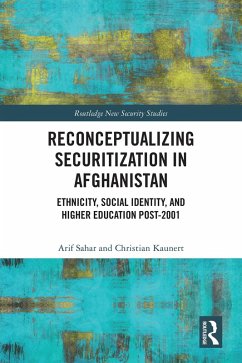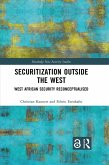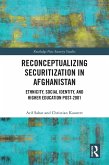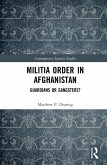Securitization is arguably the most successful theoretical framework to analyse security beyond the military confines. Yet, despite its broadening agenda, the securitization framework has been accused of a Western bias. This book analyses the extent and the modalities and practices of the securitization of ethnic identities and social groups (e.g. women) by the state in Afghanistan post-2001, which is especially relevant following the takeover by the Taliban in August 2021. It puts forward a more nuanced argument by analytically distinguishing and empirically testing state policies, practices, and perspectives on ethnic and social groups that are largely informed by the fear and legacies of civil war (1978-2001). The work argues that the traditional lack of a stable state identity that could function as a basis for ontological security in Afghanistan has resulted in a persistent state of fragility exacerbated by the legacies and fears of civil war that have had a direct impact on the development of the state's perspectives on ethnic and social groups. Whilst the state does not necessarily indulge in explicit securitization practices and discourses, securitization often takes place through implicit activities to undermine ethnic and social groups' ability to enter political, economic, and socio-cultural competitions fairly and equitably, which would, in turn, enable these groups to challenge the state. The securitization process, therefore, has had an impact on the ability of these groups to benefit from opportunities fairly and equitably.
This book will be of much interest to students of critical security studies, statebuilding, Asian politics, and International Relations in general.
Dieser Download kann aus rechtlichen Gründen nur mit Rechnungsadresse in A, B, BG, CY, CZ, D, DK, EW, E, FIN, F, GR, HR, H, IRL, I, LT, L, LR, M, NL, PL, P, R, S, SLO, SK ausgeliefert werden.









